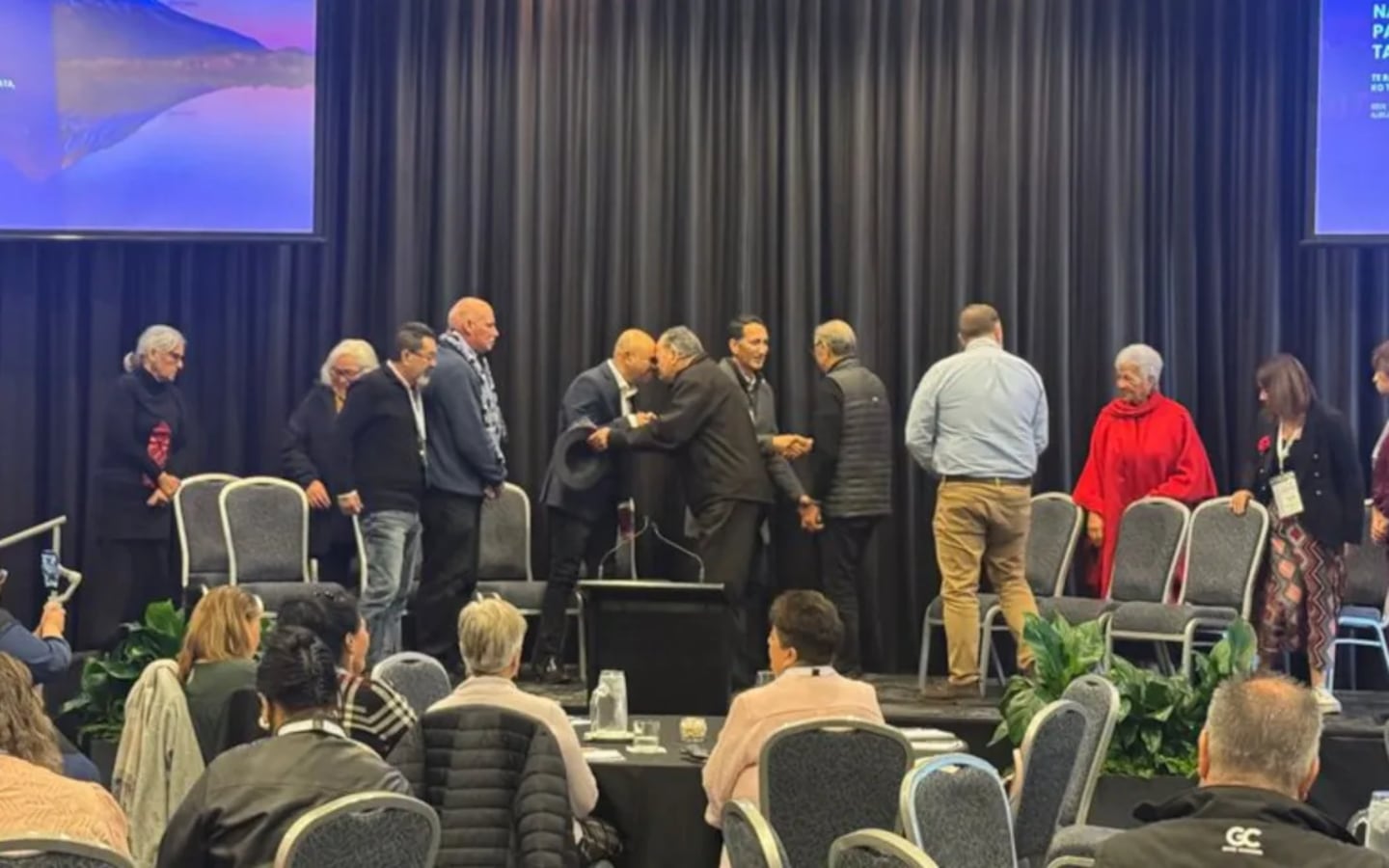This article was first published on RNZ.
Iwi Māori Partnership Boards are concerned changes to the Pae Ora Act minimises their role.
A national hui hosted by Te Punanga Ora in Taranaki brought all 15 Iwi Māori Partnership Boards (IMPBs) together for the first time since their establishment in 2022.
The gathering followed the first reading of the Pae Ora (Healthy Futures) Amendment Bill which is set to ‘rebuild the health system’.
There are four things within the proposed changes that Hingatu Thompson from Te Taura Ora o Waiariki IMPB wants the government to reconsider.
“One is we don’t agree that te Tiriti should be removed out of all legislation. The second thing is, there is a Hauora Māori Advisory Committee (HMAC), we support them having a national role, but we think they should be accountable to iwi and we can provide that channel.
“The third thing is there’s a Māori health strategy still within the Act, and we just want to endorse that. There’s no way New Zealand is going to achieve improvement in Māori health without having a plan.”
His fourth concern was the role of IMPBs. Thompson said if their roles were taken away, it would be harder for Māori health to improve.
“It’s about the Treaty relationship, te Tiriti o Waitangi, how Māori engage with the Crown to ensure Māori are well and to make sure there is a difference for all of the inequity that we see because Māori do die younger. We do have access to the same services, but the outcomes are worse.”
It was announced last week that life expectancy for Māori had increased more than any other ethnic group in New Zealand, but the 3.1 year increase still kept Māori at the bottom of the rung.
“It would be interesting to see where those statistics are generated from,” Te Pununga Ora deputy chair Mitchell Ritai said.
From heart conditions to gout, Ritai said certain medical conditions contributed to Māori dying earlier than non-Māori.
“These are all historical issues and we need a system that helps to ensure that these inequities that we’re experiencing as Māori are addressed in the correct way.”

He believed it should be up to local people in communities who should lead the way.
“Interventions, programmes, initiatives to help improve health statistics should be led locally. The change to the Pae Ora Act stops that and that’s one of our concerns is that our voice, and the voice of our whānau, may potentially be silenced with these amendments.”
It was through the Tino Rangatiratanga clause under article two of te Tiriti o Waitangi that got IMPBs off the ground, Ritai said, it was an ability for Māori to have a direct connection to decision makers at a local level around addressing health inequities for Māori.
Te Pāti Māori co-leader Debbie Ngarewa-Packer said the Pae Ora legislation was the last of the changes that the “government has made to strip out te Tiriti, to strip out equity approaches to Māori health”.
“It’s gutting for a lot of entities that have been around forever and tried the mainstream health way and seen how it’s failing Māori.
“The sadness is that we’re tangata whenua. We’re the indigenous peoples of Aotearoa. And the government doesn’t think that we’re worth protecting. It’s quite heartbreaking when you look at the level of commitment that iwi have given.”
With the backing of whakapapa and mana, IMPBs are iwi-led and iwi-appointed, therefore they hold aspirations within each of the regional iwi, Ngarewa-Packer said.
“What we’ve been trying to do is go out to create health services in a regional bespoke way that makes sure that you can either go out to marae or go to the kaumātua wānanga, be where rangatahi are and deal with it as best suits for those communities in a regional sense.
“And that’s what the Iwi Māori Partnership Boards are mandated to do... advise and determine where investment should be.”
Public submissions on the Healthy Futures (Pae Ora) Amendment Bill close Monday, 18 August.
By Emma Andrews of RNZ.


